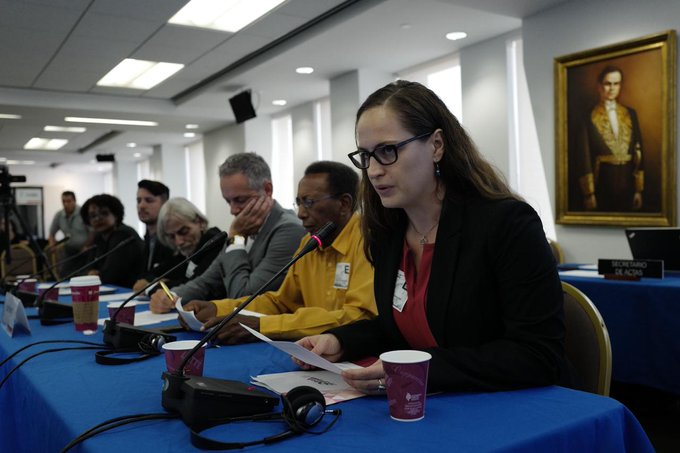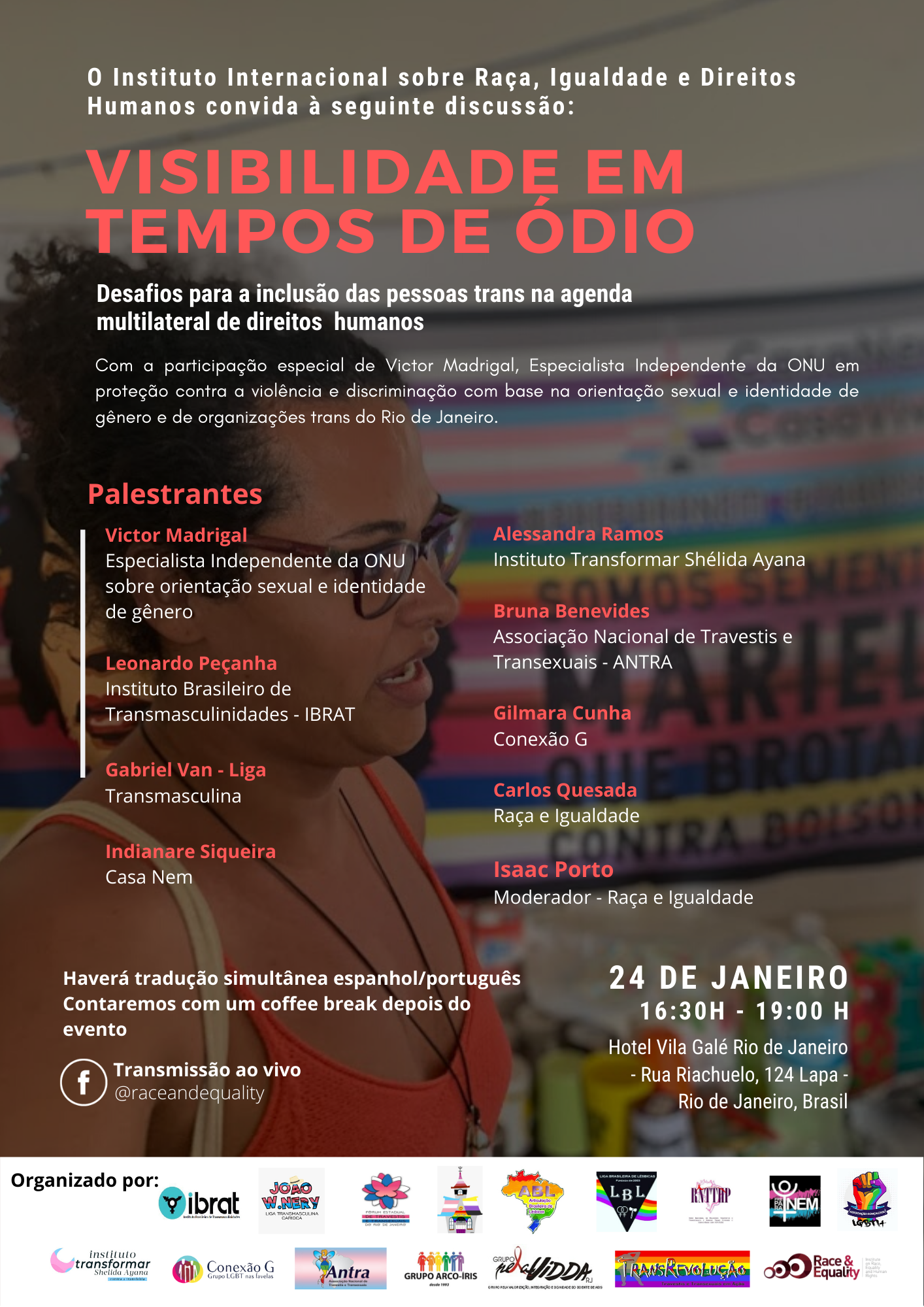“Despite the constitutional reform, human rights continue to be violated systematically in Cuba”: Cuban activists testify before the Inter-American Commission on Human Rights
During the 173rd Period of Sessions of the Inter-American Commission on Human Rights (IACHR), held in Washington, DC from September 23 through October 2, human rights defenders, activists and independent […]

During the 173rd Period of Sessions of the Inter-American Commission on Human Rights (IACHR), held in Washington, DC from September 23 through October 2, human rights defenders, activists and independent journalists from Cuba brought the concerning situation for human rights in their country to the Commissioners’ attention.
Alongside journalists from the outlets Diario de Cuba, Cubanet and Tremenda Nota and activists from Cubalex and the Cofradía de Negritud, Race and Equality’s Legal Program Officer Caitlin Kelly reported that despite a constitutional reform supposedly meant to ensure Cubans’ rights and the ascension of a new President from outside the Castro family, concerning levels of persecution, harassment and repression persist. A lack of political will to guarantee rights for those who dissent from the Cuban government’s dictatorial policies prevents these abuses from being addressed.
“We are concerned with the Cuban regime’s use of the Penal Code to criminalize dissenting voices. Crimes such as ‘contempt,’ ‘affront,’ ‘resistance’ and ‘disobedience,’ along with the legal label of ‘dangerousness,’ are the most frequently-used tools of criminalization,” stated Kelly.
This thematic hearing also raised the fact that between 2016 and 2018, approximately 171 arbitrary detentions and over 700 cases of state-imposed domestic and international travel restrictions were recorded against journalists. According to Pablo Díaz, director of the independent media outlet Diario de Cuba, travel bans are one of the main forms of repression used by the Cuban state, which frequently forbids journalists from leaving the country in order to prevent them from carrying out their work:
“At this moment in Cuba, travel restrictions against independent activists, artists and journalists are the main tool of repression used by the regime, in violation of the migration policies established in 2013.”
#CIDHAudiencias "En este momento en #Cuba las restricciones de viaje a activistas, artistas y periodistas independientes es la principal herramienta de represión que utiliza el régimen en contraposición a la política migratoria de 2013 establecida por el Estado" @diariodecuba pic.twitter.com/piFdUIw56m
— Race and Equality (@raceandequality) September 23, 2019
Tremenda Nota journalist Carlos Alejandro Rodríguez stated that the government continues to block and censor those channels of communication that it cannot control. “Our outlet went from operating outside the law to being illegalized with the recent decree that outlaws media channels that do not agree with the regime’s policies,” he added.
Rodríguez also spoke out about the abuses, arbitrary detentions and confiscations that independent journalists suffer in Cuba, stating that Cuban journalists are subjected to coercion by government forces seeking to frighten them into abandoning their work, becoming informants or fleeing the country.
Cubalex director Laritza Diversent spoke out about the violence and repression that female journalists and rights defenders suffer, including constant threats and humiliating treatment at the hands of state forces. According to Diversant, “many arrested female journalists are strip-searched and subjected to cavity searches. They are also repressed through actions against their family members.” IACHR Commissioner Margarette May Macaulay, who is also Rapporteur on the Rights of Afro-Descendants and Rapporteur on the Rights of Women, requested additional information and documentation about these particular abuses.
Afro-Cuban rights activist Norberto Mesa Carbonell, director of the Cofradía de Negritud, described the various forms of repression and violence that he has suffered at the hands of Cuban authorities in retaliation for his activism:
“We have been victims of a violent regime that makes attacks against activists’ rights. The prohibition of peaceful meetings or assemblies and short-term arbitrary detentions are tactics the government uses to silence our voices.”

Speaking in regard to the discrimination and racism that is prevalent in Cuba but covered up by the government, Diversant added: “Legally, there are no initiatives or even efforts by the government to recognize that racial discrimination exists in Cuba. Racial discrimination is not found in the Penal Code as an offense, making it impossible for Cuban society to demand justice through such channels.”

Finally, IACHR Commissioner Antonia Urrejola, who is also Rapporteur for Cuba, lamented that grave human rights violations persist in Cuba despite the new constitution. She asked the assembled activists and journalists to continue submitting information as her office prepares the IACHR’s upcoming country report on Cuba.
Race and Equality continues our work defending, uplifting and promoting the rights of activists, independent journalists and human rights defenders in Cuba, conscious of the vulnerability in which they live and work on the island. We will continue to document cases of violence and report on the forms of repression used by the Cuban regime, calling upon the international community to remain attentive to the situation of human rights in the country.

